Personal injury attorneys are experienced in bringing lawsuits against those whose negligence has caused harm to others.
However, the legal process is not only convoluted but also seems difficult to access, at least 'from the outside.' So, specifically, what are some of the steps that are involved in filing a personal injury lawsuit?
Most individuals believe that filing a lawsuit is the first step towards achieving justice and significant compensation. As is often the case, however, this is quite far from the truth.
When you first discuss your case with an injury law firm, they will begin to investigate just about every aspect of your case. Where it happened, how it happened, who was there, who was present (but should have been,) what time the injury occurred at, and many more. All of these data points are essential when considering legal action because each one can be a helpful or hurtful piece of evidence towards a victim's claim.
Perhaps most importantly, the professional you consult will determine whether there is a standing statute of limitations that would prevent the case from moving forward. A statute of limitations prevents claims from being brought forth after a specific amount of time. In Delaware, for instance, injury victims or a wrongful death victims cause by negligence generally have a period of two years from the date of the incident to take legal action. Learn more about our wrongful death lawyer here.
Once your attorney has investigated the circumstances of the case as well as detailed all of the available evidence, they will inform you of the potential legal options at your disposal. There may be more, but this scenario can be simplified into two simple ones - either pursuing the claim or not.
A large part of a lawyer's job is to adequately set the expectations of the victim. Naturally, an injured individual will want to seek as much as possible in compensation from those who they believe caused their injury. However, even when liability is clear and easy to prove, this not entail that every compensatory demand the victim and their legal team make will be granted.
Your legal representative understands this well. In fact, they have dealt with this in every single case they've handled in the past. You should seek a defender who keeps your expectations in check; if they don't (and instead they attempt to guarantee a 'win' or large compensation,) then you should look elsewhere.
If the injury victim decides to move forward with the claim, the legal representative will then contact the other party and inform them of the intent to file.
This step allows the 'defendant' to informally admit to causing the negligence and settle outside of court. Most individuals, as well as the insurance companies who are usually on the hook for paying for their mistakes, are unwilling to let a claim go all the way to trial.
A trial can be a huge resource-drain on any person, company, or other entity. As a result, most will try to settle claims before an official claim is ever filed. Settling outside of court can also be hugely beneficial for victims, as they get the compensation they need within a much shorter time frame. Moreover, they skip the immense pressure that a drawn-out legal battle can bring.
If the 'other side' is unwilling to negotiate, or their settlement offer is deemed unfair, then your attorney will move forward with officially filing a lawsuit.
Once the lawsuit has officially been filed on your behalf against those who are deemed responsible for the damages you've suffered, then the discovery phase of the case can begin.
During discovery, both the plaintiff and the defendant will go back and forth, sharing all of the available evidence with each other. It may sound counterintuitive, but both parties must always be made aware of any evidence the opposing party possesses. Evidence can't simply be presented in court without giving those across the aisle a chance to review it and prepare rebuttals.
Soon after discovery begins, a mediator may be brought in to attempt to ease negotiations between parties. Once more, avoiding trial is the goal here. Not only is additional pressure placed on the civil justice system, but settlements tend to be the most beneficial path for all involved.
If mediation is ineffective in easing tensions, then the claim will eventually be argued in court. The previous steps may sound short-lived, but they can take anywhere from weeks to months and even years. A case that makes it to trial is likely to have already consumed months of time and could extend the legal debate for many more.
Once in court, legal arguments are made by both sides in front of a judge or jury. Once all evidence is presented, all witnesses have spoken and any other procedures have been completed, the court will make a decision as to whether negligence existed. If so, a second decision must be made to determine the amount of compensation the victim is entitled to.
The victim's legal team will make suggestions to the court as to how much compensation should be awarded, though this too can be argued by the defendant. Ultimately, the court will use its own specific reasoning to arrive at a total compensation amount.
If the above information has caused you to hesitate from seeking justice via an injury lawsuit, contact us today. We stand by your side, fighting aggressively to achieve the compensation you deserve. We'll handle every step discussed here and tackle the many other intricate obstacles posed by the legal systems as well as defendants. You need only concentrate on what's truly important given the circumstances - your own health and full recovery.
